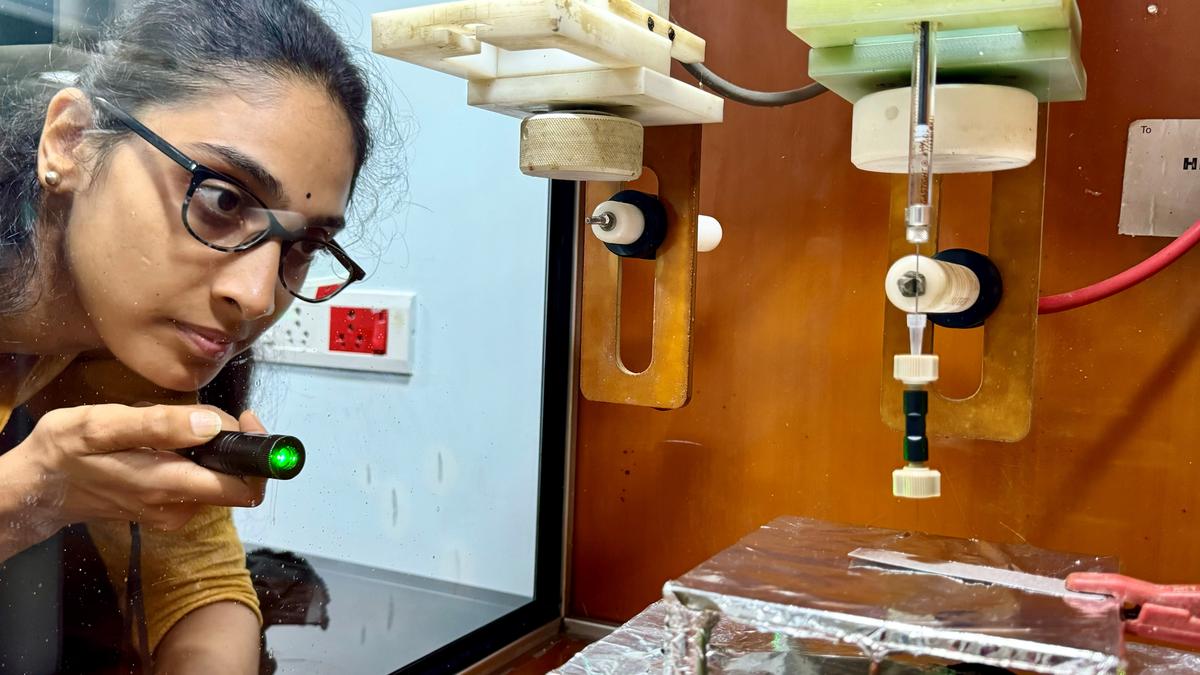
‘Outstanding work’: IIT-M team makes mineral nanoparticles with water Premium
The Hindu
Water microdroplets can break minerals down into nanoparticles, potentially revolutionizing agriculture and atmospheric processes.
Water drops are ubiquitous around us and come in different sizes. They can be as large as a raindrop or as small as aerosol particles released from a spray can.
They can be even smaller — invisible to the naked eye — when they come as microdroplets. The latter are just a thousandth the size of a typical raindrop.
“We think that droplets are very tiny, and they are not important enough,” Thalappil Pradeep, a chemist at IIT Madras, told The Hindu.
But they can pack a punch.
Dr. Pradeep led a study recently published in the journal Science that showed microdroplets of water can break minerals down into nanoparticles. The team involved researchers from IIT Madras and the Jawaharlal Nehru Centre for Advanced Studies, Bengaluru.
“This outstanding work adds significantly to the growing body of evidence that water droplets enable chemical transformations that bulk water does not make possible,” Richard Zare, a chemist at Stanford University who wasn’t involved in the study, told The Hindu.
In a bucket of water, water molecules at the surface can participate more easily in chemical reactions than those in the bulk. But even at the surface, they’ll need to be supplied some energy before they can participate. The water molecules of microdroplets do one better: because they have so little room and are packed closely together, they’re more eager to participate in chemical reactions.

Delhi’s official weather station at Safdarjung recorded 104.8 mm of rainfall in the 24 hours ending at 5.30 p.m. on Saturday, pushing the cumulative rainfall this rainy season to 38% above normal. From June 1, the start of monsoon in Delhi, the city has received 509.22 mm of rainfall. As per India Meteorological Department (IMD) data, the Capital saw rainfall in excess of 45% in June and 24% in July. Rain was recorded in Delhi on all days of July, except 20 and 21.

The Delhi High Court has directed the Delhi government to provide two months’ notice to staff members of Mohalla Clinics in case it proposes to terminate their services before March 31 next year. The court’s order came while dealing with a petition filed by staff members of Mohalla Clinics hired on a contractual basis by the previous Aam Aadmi Party (AAP) government. The petitioners, employed as pharmacists, assistants, and multitask workers, had sought directions against their termination and replacement with other contractual employees.





















 Run 3 Space | Play Space Running Game
Run 3 Space | Play Space Running Game Traffic Jam 3D | Online Racing Game
Traffic Jam 3D | Online Racing Game Duck Hunt | Play Old Classic Game
Duck Hunt | Play Old Classic Game









